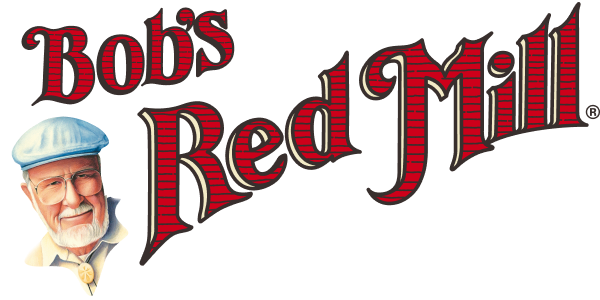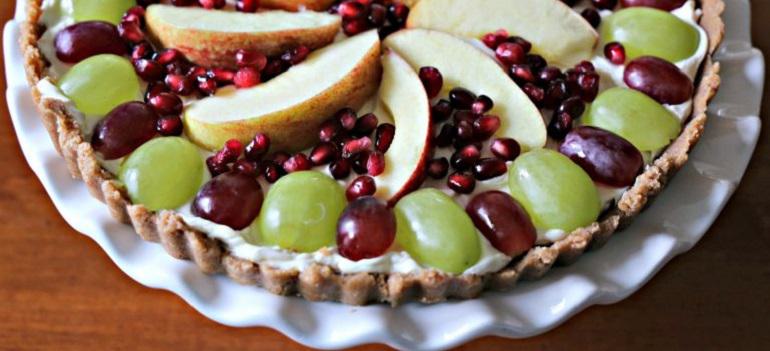


 Kids are messy, and no matter how prepared you may be, it's likely that something will be spilled, tossed or dumped during the baking process. Instead of trying to ensure that everything stays clean, prepare for a mess. Laying down a washable blanket, keeping a damp dishtowel nearby, or setting out a mop for any big spills are ways to make sure you're prepared to tackle any mess that comes your way.
Another way you can better prepare yourself is to read the recipe beforehand. Knowing which ingredients and tools you'll be working with can help you better determine kid-friendly areas of the recipe. If the recipe calls for some pretty messy activities like measuring and mixing flours, it may be best to prep those ingredients on the "adult" side of the kitchen or premix the flours beforehand. Instead, you can have your child crack an egg into the already mixed flours to get them involved. For younger kids who may not be able to help with much, try reading the steps of the recipe together and naming the different ingredients in the kitchen as you're mixing them. Remember, getting children involved doesn't necessarily mean they have to be hands-on. When they can't help at all, talk to them about what you're doing and walk them through the process so that they are more prepared the next time they help. There are plenty of ways to spend time in the kitchen together that don't involve a messy outcome.
Kids are messy, and no matter how prepared you may be, it's likely that something will be spilled, tossed or dumped during the baking process. Instead of trying to ensure that everything stays clean, prepare for a mess. Laying down a washable blanket, keeping a damp dishtowel nearby, or setting out a mop for any big spills are ways to make sure you're prepared to tackle any mess that comes your way.
Another way you can better prepare yourself is to read the recipe beforehand. Knowing which ingredients and tools you'll be working with can help you better determine kid-friendly areas of the recipe. If the recipe calls for some pretty messy activities like measuring and mixing flours, it may be best to prep those ingredients on the "adult" side of the kitchen or premix the flours beforehand. Instead, you can have your child crack an egg into the already mixed flours to get them involved. For younger kids who may not be able to help with much, try reading the steps of the recipe together and naming the different ingredients in the kitchen as you're mixing them. Remember, getting children involved doesn't necessarily mean they have to be hands-on. When they can't help at all, talk to them about what you're doing and walk them through the process so that they are more prepared the next time they help. There are plenty of ways to spend time in the kitchen together that don't involve a messy outcome.
 Pre-schoolers are a very hands-on age group, which means that they usually love to help out with baking. While they may not have the skills needed to measure ingredients or decorate cookies, it's your job to help them develop them. When baking with pre-schoolers, it's vital to involve their senses. Encourage them to smell a delicious blend of spices, or taste some of the ingredients before they're mixed into the batter. Pre-school cooks require a lot of close supervision and direction, as every moment they spend with you baking in the kitchen is filled with learning experiences.
Curious to learn how you can begin involving your pre-schoolers in your baking sessions? Here is a list of our favorite preschool-approved baking tasks.
Pre-schoolers are a very hands-on age group, which means that they usually love to help out with baking. While they may not have the skills needed to measure ingredients or decorate cookies, it's your job to help them develop them. When baking with pre-schoolers, it's vital to involve their senses. Encourage them to smell a delicious blend of spices, or taste some of the ingredients before they're mixed into the batter. Pre-school cooks require a lot of close supervision and direction, as every moment they spend with you baking in the kitchen is filled with learning experiences.
Curious to learn how you can begin involving your pre-schoolers in your baking sessions? Here is a list of our favorite preschool-approved baking tasks.
 By the time your child reaches elementary school, their fine motor skills are likely to be much more developed than that of a pre-schooler. An elementary school baker's hands will be more stable, and they'll know (or will be learning) the basics of mathematics. This being said, measuring out ingredients, cracking eggs and stirring in flours are all tasks that you can begin introducing. Plus, because many elementary schoolers will be actively working on their reading, having them help read and follow the recipe is the perfect job. Because young children are curious, especially at this age, your child will love getting their hands dirty. Giving them tasks like greasing and flouring pans, kneading dough and mixing batter are sure to be among their favorite. No matter how well your child does with the tasks at hand, it's important to remember that this age group is still very young. Hot ovens, knives and mixers should remain off-limits, and your child should be supervised at all times. Working together in the kitchen is a collaborative task and an excellent opportunity to support your child's growth and development. To create a safe and fun learning environment, you'll want to boost your child's confidence while baking by providing positive reinforcement and compliments. Additionally, if you notice that your child is wary of trying new tasks on their own, try them yourself. When you're laughing, having fun and trying new things, your child is bound to follow along.
A few elementary school baking tasks we like involving our kids in, include:
By the time your child reaches elementary school, their fine motor skills are likely to be much more developed than that of a pre-schooler. An elementary school baker's hands will be more stable, and they'll know (or will be learning) the basics of mathematics. This being said, measuring out ingredients, cracking eggs and stirring in flours are all tasks that you can begin introducing. Plus, because many elementary schoolers will be actively working on their reading, having them help read and follow the recipe is the perfect job. Because young children are curious, especially at this age, your child will love getting their hands dirty. Giving them tasks like greasing and flouring pans, kneading dough and mixing batter are sure to be among their favorite. No matter how well your child does with the tasks at hand, it's important to remember that this age group is still very young. Hot ovens, knives and mixers should remain off-limits, and your child should be supervised at all times. Working together in the kitchen is a collaborative task and an excellent opportunity to support your child's growth and development. To create a safe and fun learning environment, you'll want to boost your child's confidence while baking by providing positive reinforcement and compliments. Additionally, if you notice that your child is wary of trying new tasks on their own, try them yourself. When you're laughing, having fun and trying new things, your child is bound to follow along.
A few elementary school baking tasks we like involving our kids in, include:
 Once your kid reaches the tween stages, they can begin to handle many more tasks in the kitchen. Children at this age are much more advanced in both mathematics and motor skills. With proper supervision, they can start taking the lead on more advanced recipes like cupcakes, muffins and cookies. They may also begin using their creativity in the kitchen by thinking of tasty add-ins and flavor combos to add to their favorite recipes. For more mature tween bakers, you may want to start giving them simple baking recipes that they can handle on their own. While this is a significant next step, it's essential to remain on-hand to supervise, especially when your children are using more advanced cooking supplies like ovens, mixers and sharp utensils.
Here are a few baking tasks that tweens can begin trying:
Once your kid reaches the tween stages, they can begin to handle many more tasks in the kitchen. Children at this age are much more advanced in both mathematics and motor skills. With proper supervision, they can start taking the lead on more advanced recipes like cupcakes, muffins and cookies. They may also begin using their creativity in the kitchen by thinking of tasty add-ins and flavor combos to add to their favorite recipes. For more mature tween bakers, you may want to start giving them simple baking recipes that they can handle on their own. While this is a significant next step, it's essential to remain on-hand to supervise, especially when your children are using more advanced cooking supplies like ovens, mixers and sharp utensils.
Here are a few baking tasks that tweens can begin trying:
 By the time your child reaches their teenage years, the chances are that you've spent some time in the kitchen together and they already know the basics. If your child is interested in learning how to make more than just an average sandwich or stack of pancakes, then now is the time to begin teaching them the skills that you've learned throughout your years of baking experience. By helping your children perfect their baking skills, you can provide them with the confidence needed to develop their own original creations. Before allowing your children to start baking on their own, it's important to make sure they fully understand how to safely use all the kitchen equipment. Plus, you should always remain near to help if needed.
A few tasks that a teenager may enjoy doing are:
By the time your child reaches their teenage years, the chances are that you've spent some time in the kitchen together and they already know the basics. If your child is interested in learning how to make more than just an average sandwich or stack of pancakes, then now is the time to begin teaching them the skills that you've learned throughout your years of baking experience. By helping your children perfect their baking skills, you can provide them with the confidence needed to develop their own original creations. Before allowing your children to start baking on their own, it's important to make sure they fully understand how to safely use all the kitchen equipment. Plus, you should always remain near to help if needed.
A few tasks that a teenager may enjoy doing are: